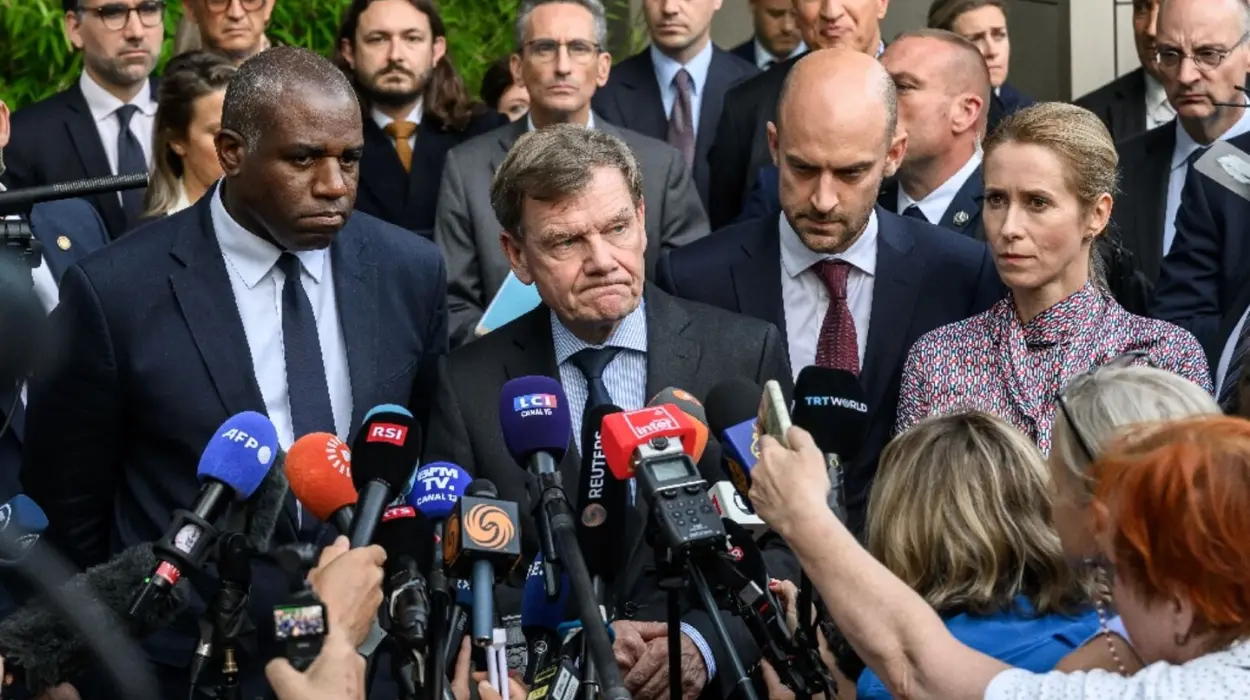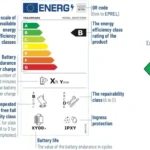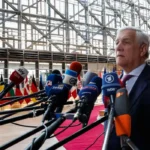The Israel-Iran conflict has entered its second week with intense missile exchanges and airstrikes causing mounting casualties and regional instability. Despite the escalation, European powers are urging Iran to persist with diplomatic efforts to resolve the nuclear dispute, even as Israel intensifies strikes on Iranian military and nuclear sites. This article provides a detailed overview of the ongoing conflict, casualty figures, international reactions, and the fragile state of diplomacy.
Rising Toll of the Israel-Iran Conflict
Since Israel launched airstrikes on June 13, 2025, targeting Iranian nuclear and military infrastructure, the human cost has been severe on both sides. Iranian state media reports at least 430 civilian deaths and over 3,000 injuries, while independent monitors estimate total Iranian fatalities—including military personnel—at over 700. On the Israeli side, Iranian missile strikes have killed 24 civilians and wounded more than 1,000.
Key Military Developments
- Israel has conducted precision airstrikes using fighter jets against missile storage sites, centrifuge production facilities, and nuclear research centers, including the Isfahan nuclear complex.
- Iranian air defenses have intercepted many Israeli missiles, but some strikes have penetrated, causing damage and civilian casualties.
- Iran has retaliated with ballistic missile barrages targeting Israeli cities such as Haifa, inflicting injuries but limited structural damage due to Israel’s Iron Dome defense system.
- Israeli forces claim to have killed several high-ranking Iranian commanders and paramilitary Revolutionary Guard members in recent strikes.
European Powers Push for Continued Diplomacy
Despite the escalating violence, European nations—led by the UK, France, Germany, and the European Union—are advocating for sustained diplomatic engagement with Iran to prevent further deterioration.
Statements from European Officials
- British Foreign Secretary David Lammy emphasized the importance of ongoing negotiations, stating that Iran “cannot have a nuclear weapon” and Europeans remain “keen to continue discussions”[search results].
- French President Emmanuel Macron condemned Israeli strikes on civilian and energy infrastructure in Iran, calling for restraint and underscoring that “there’s no justification for that”.
- European foreign ministers met with Iranian Foreign Minister Abbas Araghchi in Geneva to explore avenues for dialogue, though talks ended without breakthroughs due to Iran’s refusal to negotiate while under attack.
Iran’s Position on Diplomacy
Iran’s Foreign Minister Abbas Araghchi expressed “serious concern” over Europe’s failure to condemn Israeli attacks and insisted that negotiations with the U.S. would not resume until Israeli aggression ceases. He reaffirmed Iran’s defensive capabilities as “not negotiable” but signaled openness to future talks once hostilities subside.
Regional and Global Reactions
Iran and Regional Support
- Large-scale protests erupted in Tehran, with demonstrators rejecting compromise with Israel and supporting Iran’s stance against foreign aggression.
- Supporters of Iraqi Shiite leader Muqtada al-Sadr demonstrated in Baghdad, burning Israeli and U.S. flags in solidarity with Iran.
U.S. and International Response
- U.S. President Donald Trump announced he would take up to two weeks to decide on potential military intervention against Iran, signaling a cautious approach amid escalating tensions.
- The U.S. State Department reported over 25,000 Americans seeking evacuation information from Israel, the West Bank, and Iran, with limited government-organized evacuation flights so far.
- Russia affirmed its commitment to safeguarding its personnel at Iran’s Bushehr nuclear plant and maintained diplomatic ties with both Iran and Israel, emphasizing a balanced approach.
- UN Secretary-General Antonio Guterres warned the conflict could ignite uncontrollable regional fires and urged renewed negotiations on Iran’s nuclear program.
Humanitarian and Evacuation Efforts
The conflict’s intensification has triggered significant civilian displacement and evacuation operations:
- China evacuated approximately 2,000 citizens from Iran, including a flight carrying 330 people arriving safely in Beijing[search results].
- India launched Operation Sindhu to repatriate nationals, successfully flying 290 students from the region to Delhi.
- Spain evacuated its citizens from Iran via Armenia.
Strategic Implications and Outlook
The Israel-Iran conflict represents a critical flashpoint with potential to destabilize the Middle East further. Israel’s air superiority and targeted strikes aim to cripple Iran’s nuclear ambitions, while Iran’s missile retaliations seek to pressure Israel and its allies. European calls for diplomacy highlight the international community’s concern over a broader regional war.
However, the stalemate in talks, Iran’s refusal to negotiate under attack, and Israel’s continued military operations suggest tensions remain high. The coming weeks will be pivotal as global powers weigh intervention risks and diplomatic solutions.
As the Israel-Iran conflict intensifies with mounting casualties and missile exchanges, European powers urge Iran to maintain diplomatic channels despite ongoing Israeli strikes. The fragile diplomacy, regional protests, and international evacuation efforts underscore the conflict’s complexity and far-reaching impact. The world watches closely as leaders navigate between military escalation and the urgent need for peaceful resolution.









